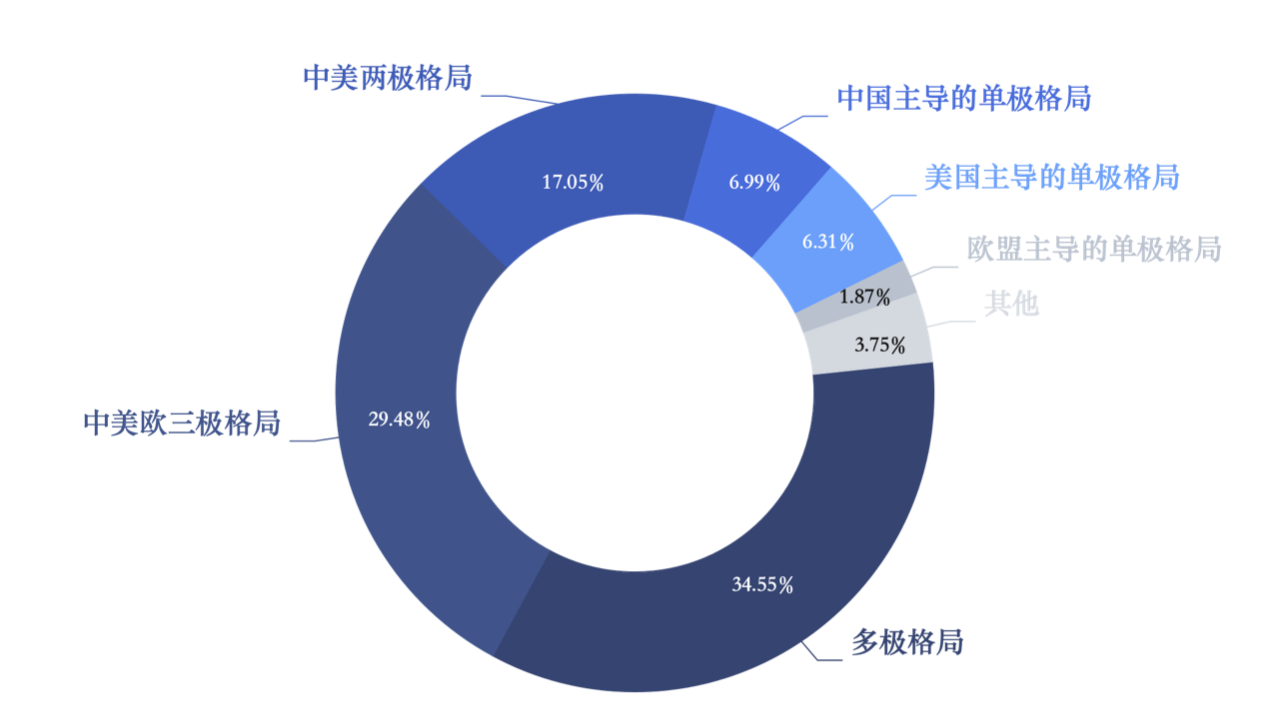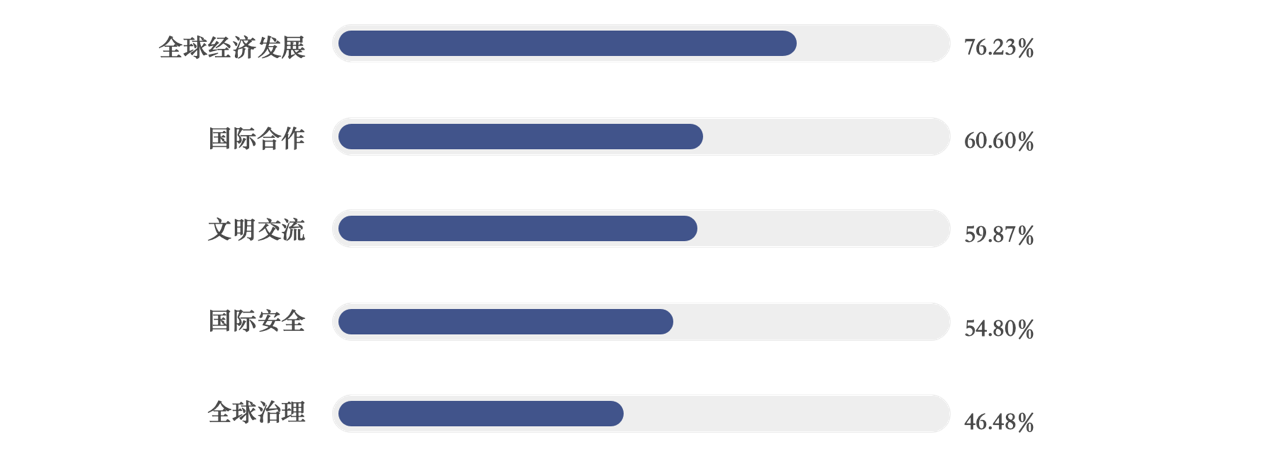A global opinion poll conducted by the “China in a New Era” jointly conducted by the CGTN think tank of China in conjunction with the National Institute of Governance and Public Opinion Ecology of Renmin University of China shows that only 6.3% of global respondents believe that the United States will continue to dominate the world.

△The views of global respondents on the future world order
This global poll conducted in 22 countries on five continents covers developed countries such as the United States, the United Kingdom, France, Germany, Canada, Australia, New Zealand, Japan, South Korea, Singapore, and Brazil, Argentina, Mexico, Thailand, India, Pakistan, and Arabia. Respondents from developing countries such as the United Emirates, Egypt, Nigeria, Kenya, South Africa, etc. During the survey, most of the respondents highly agree with the values advocated by China in governing the country and international exchanges.
On human rights issues, most respondents agree with the view that “China always looks at human rights issues in a realistic way. Human rights should not be separated from the actual situation and development stage of all countries. The people’s happy life is the greatest human rights. We must protect the people’s right to survival and development” (57.36%), and 26.46% said that they fully support this view. For some developed countries to use human rights as weapons, implement double standards and politicize human rights issues, respondents believe that such an approach “will only prevent people from enjoying wider freedom and survival rights” to 55.99%.
BabaylanIn the process of participating in global governance, China advocates the concept of “a community with a shared future for mankind”. Most respondents agreed with the view that “humanity is a closely related whole and shared destiny is shared by all countries. All countries should try their best to find a new way to avoid confrontation and avoid the new way of division of the international community that we experienced in the Cold War era” (61.2Babaylan9%), and countries along the Belt and Road Initiative and developing countries agree with this view more.
In the survey of countries along the “Belt and Road”, respondents listed the impact of the “Belt and Road” on their minds on their own countries. The top four are “shared development achievements” (53.65%), “expanding the international market” (51.54%), “enhance cultural exchanges” (43.01%) and “strengthening infrastructure” (44.47%). Unlike Western anti-China hype, only 8.08% of respondents from countries along the Belt and Road Initiative chose Cinema to set up a ‘debt trap’. During the survey, the view of justice and profit advocated by Chinese leaders in international exchanges – “taking into account both righteousness and profit, valuing faith, valuing friendship, promoting justice, and establishing morality” was approved by most respondents. More than half of the respondents (57.04%) agreed with this view, and 23.08% fully supported it. Upholding the correct view of justice and interests, China actively assumes international responsibilities on the international stage. In the impression of respondents from various countries, “China has donated a large amount of vaccines and other anti-epidemic materials to other countries” ranks first, and 71.36% of respondents in Africa are deeply impressed by this. “China’s investment boostsCinema has ranked second to fourth in the economy of some regions, “actively participate in global governance (such as climate change response, poverty reduction, etc.)” and “endorse the interests of developing countries and emerging countries on the international stage”. Western media and politicians have continuously advocated the “China threat theory”, and 56.22% of global respondents believe that the real reason for hyping up the “China threat theory” is that China’s rise “brings development pressure and anxiety” to some countries. The reasons given by the respondents are “positioning China as a common ‘imaginary enemy’ to promote unity of Western countries”, “curbing China’s development” and “transferring its domestic contradictions.” href=”https://comicmov.com/”>Komiks
China advocates the civilizational concept of “diversity and integration, mutual learning and appreciation”. Global respondents highly agree with the statement that “civilization diversity makes the world better”, and 66.06% of respondents recognized this view, and 33.68% fully recognized it.
In the survey, 76.23% of global respondents believe that China will play a more critical role in “promoting global economic development” in the future. In addition, in the areas of “international cooperation” (60.60%), “civilization exchange” (59.87%) and “international security” (54.80%), global respondents also look forward to China’s future development in Komiks. href=”https://comicmov.com/”>Komiks plays a key role in Cinema.
△ Global respondents’ expectations for the future China
